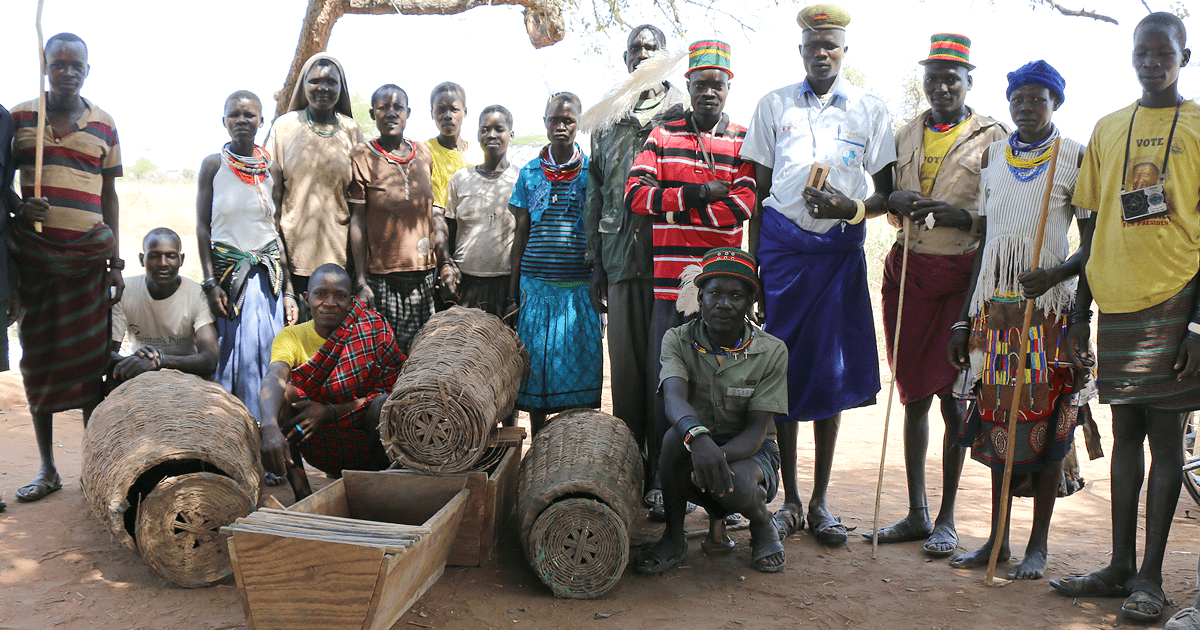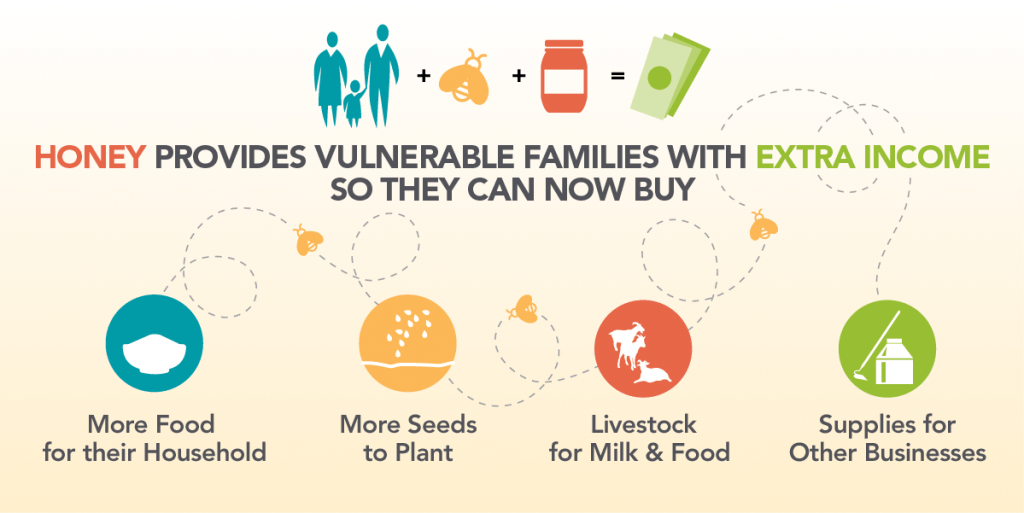
In the remote, dusty village of Kamera in northeastern Uganda, villagers have traditionally depended on hunting, day labor, and small-scale agriculture to earn a living. As climate change has caused unpredictable weather conditions, however, families have struggled to meet basic needs as crops and incomes have dried up.
In 2014, seeking an alternative source of income for people in the region, the USAID Resiliency through Wealth, Agriculture, and Nutrition (RWANU) project met with a group of villagers to equip them to strengthen local beekeeping practices. Traditionally, the people of Kamera have produced honey, but the quality and quantity were only sufficient for home consumption.
“I plan to increase honey production as these profits have allowed me to diversify my income and grow my other businesses.” – Matthew L., RWANU-trained farmer
To ensure a buyer for the honey, RWANU connected the Kamera villagers with Ugandan honey start-up Golden Bees Ltd. As Ugandans consider honey from this area to be the best in the country, Golden Bees was keen to work with the beekeepers in this area to improve their practices.
Nearly 700 villagers learned how to construct a more productive hive, how to set up bee colonies, when to harvest, and how to ensure a high-quality product by attending trainings led by RWANU and Golden Bees. RWANU also supported trainings on group dynamics and organization to enable beekeepers to consolidate honey production among different villages and bargain more effectively with Golden Bees.
In the second season of organized beekeeping activities, villagers are reaping the benefits. Beekeeper Maria L., a 45-year-old mother of seven, bought chickens, which she sells at a profit, with the income from her beehives. She notes that, “We are now are able to buy additional food for the children and seeds for the next planting season.” Overall, villagers trained by RWANU in beekeeping produced more than 32,000 pounds of honey between 2015 and 2016, earning them profits of more than $20,000. In Kamera, villagers used profits to buy hardy goats and start small side businesses.
As a result of assistance from the USAID RWANU project, the villagers of Kamera are now committed to increasing production and building more hives as they believe demand will increase. The future looks bright for Kamera beekeepers’ as Golden Bees has received orders from Kenya and beyond.
Beekeeping Broadens Benefits








